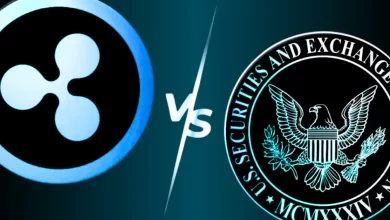Ripple: Here’s How XRP Might Benefit From South Korea’s Incoming Regulatory Guidelines

Ninety percent of Ripple’s business, according to Rahul Advani, director of policy for the APAC region, is conducted outside of the United States, with a sizable chunk taking place in the Asia-Pacific region, which includes South Korea. The demand for speedy settlements and immediate access to funds has led to growth in the use of Ripple remittances, particularly the On-Demand Liquidity (ODL) service that uses XRP in the APAC area. Recently, the Financial Services Commission (FSC) of South Korea published rules for identifying which digital assets would be designated security tokens (STOs) and, hence, come under regulations applicable to financial securities, in a strong step toward providing such regulatory clarity.
Digital assets will be classified as securities, or STOs, if they provide investors a stake in the running of a company, grant investors the right to dividends or residual property or make sure the issuer attributes profits generated from the business to investors. After being approved by the South Korean Parliament, the necessary revisions to the Capital Markets Act to recognize STOs are anticipated to be finalized in the first half of 2023 and implemented in 2024. XRP stands to gain from regulatory clarity The upcoming Digital Asset Basic Act, which is presently being evaluated by the South Korean National Assembly, will regulate digital assets that do not fall within the definition of STOs, such as payment tokens. Being a payment token, XRP might not be considered a security token or be subject to the future Digital Asset Basic Act.
Related XRP Price Rises as Ripple Lawsuit Expectations Soar: Details Back in the U.S., Ripple is battling a lawsuit with the SEC, which alleges that the $1.3 billion sale of XRP constituted an unregistered security offering. The SEC is often criticized for not providing clear regulatory guidelines for the U.S. crypto industry.
Read more on U.Today https://u.today/ripple-heres-how-xrp-might-benefit-from-south-koreas-incoming-regulatory-guidelines





